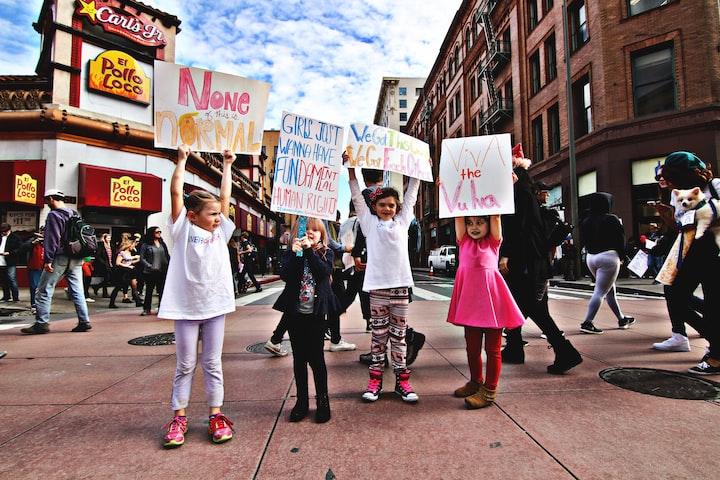Bipolar disorder, also known as manic-depressive disorder, is a mental illness that is characterized by extreme mood swings. The highs, or mania, can last for days or even weeks and be followed by a period of depression. While the symptoms of bipolar disorder can vary from person to person, there are eight signs that are commonly associated with the condition:
1. Sudden changes in mood: Individuals with bipolar disorder often experience sudden and drastic changes in their mood. They may go from feeling happy and energetic to feeling sad and sluggish within a matter of hours or days.
2. Extreme highs and lows: The “highs” experienced during a manic episode can be extremely exhilarating, while the “lows” of a depressive episode can be debilitating.
3. Irritability: Bipolar disorder can cause people to feel unusually irritable or “on edge” during certain periods of time.
4. Difficulty concentrating: Those with bipolar disorder may have difficulty focusing or paying attention during certain periods of time.
5. Changes in sleep patterns: People with bipolar disorder may find that they either sleep too much or too little when they are experiencing an episode of mania or depression respectively.
Feeling sad, hopeless or irritable most of the time
Bipolar disorder is a mental illness that causes extreme mood swings. The highs, or mania, can be so intense that they interfere with your ability to function. The lows, or depression, can be just as debilitating.
The symptoms of bipolar disorder can be divided into two categories: manic and depressive. Manic symptoms include feeling elated or irritable, being excessively talkative, having difficulty sleeping and having grandiose ideas. Depressive symptoms include feeling sad or hopeless, losing interest in activities you once enjoyed and having trouble concentrating.
If you experience any of these symptoms on a regular basis, it’s important to see a doctor so they can properly diagnose and treat your condition.
Lacking energy
2. If you’re experiencing a significant change in your sleeping patterns, that can also be a symptom of bipolar disorder. This may include sleeping much more or less than usual, or having difficulty falling asleep or staying asleep throughout the night.
3. Another sign of bipolar disorder is an increase in activity levels. This may manifest itself as feeling restless, fidgety, or even agitated and unable to sit still for long periods of time. You may also find yourself engaging in risky behaviors when you’re feeling this way.
4. Changes in appetite are also common among people with bipolar disorder; either overeating or under eating can be a symptom of the condition.
5. Racing thoughts and talking very quickly are both signs that you may be experiencing mania, a period of abnormally elevated mood which is characteristic of bipolar disorder. During mania, you may also feel like your thoughts are “fuzzy” and have difficulty concentrating on tasks or conversations.
Feelings of emptiness or worthlessness
1. Feeling empty or worthless is a common symptom of bipolar disorder. 2. People with bipolar disorder often feel like they have no purpose in life. 3. They may also feel like they are a burden to others and that their life is not worth living. 4. Bipolar disorder can cause people to experience extreme mood swings, which can further contribute to feelings of emptiness and worthlessness. 5. During manic episodes, people with bipolar disorder may feel invincible and believe that they can do anything, while during depressive episodes, they may feel hopeless and helpless. 6. People with bipolar disorder may also suffer from anxiety, which can add to the feeling of emptiness and worthlessness. 7. Bipolar disorder can be very isolating, as people often withdraw from others when they are feeling low. This isolation can further compound the feelings of emptiness and worthlessness. 8. Treatment for bipolar disorder is important in managing these symptoms and helping people with bipolar Disorder live fulfilling lives.
Feelings of guilt and despair
1. Feeling very sad or empty most of the time.
2. Feeling hopeless, helpless, or worthless.
3. Having low energy levels and little motivation to do anything.
4. Experiencing sudden mood swings from feeling happy to feeling very down or angry.
5. Taking unnecessary risks or engaging in risky behaviors (e.g., spending sprees, gambling, reckless driving).
Self-doubt
1. Feeling restless or agitated; feeling like you can’t sit still or be patient
2. Having racing thoughts or a hard time concentrate
3. Talking quickly, jumping from one subject to another, or having pressured speech
4. Feeling excessively happy, optimistic, euphoric, or elated for long periods of time; this is known as a “mania” or “hypomania” episode
5. Becoming easily irritated, anxious, angry, moody, or having other drastic changes in mood for no apparent reason
6. Experiencing delusions or hallucinations (seeing things that aren’t there) during a manic episode 7 8. Acting impulsively and engaging in risky behaviors without thinking about the consequences; this could include spending sprees, impulsive sex acts, substance abuse.
